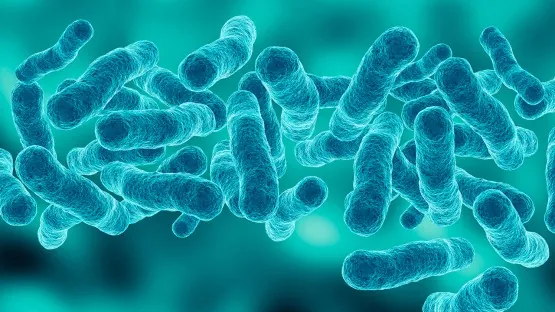
Breakthrough Discoveries in Legionnaires' Disease Treatment: Could These Findings Save Lives?
2025-01-23
Author: Wei Ling
Breakthrough Discoveries in Legionnaires' Disease Treatment: Could These Findings Save Lives?
Recent research has unveiled significant insights into the bacteria responsible for Legionnaires' disease and Q fever, offering new hopes for effective therapies. Legionella, a cunning adversary, has been known to persist in water systems for years, leading to serious health crises, including the tragic Flint water crisis, which claimed at least 12 lives between 2014 and 2015. Just this year, officials in Ithaca reported an outbreak linked to Legionella, resulting in multiple infections and one fatality.
A groundbreaking study published on January 23 in the Journal of Bacteriology sheds light on how these bacteria endure both in the environment and within the human body. The research highlights the crucial role of a specific enzyme, LD-transpeptidase, which could become a vital target for innovative treatments.
Dr. Dipak Kathayat, the senior author and postdoctoral researcher at the College of Veterinary Medicine, explained, "Our findings reveal that when Legionella and C. burnetii enter the environment, they undergo a transformation, altering their outer shell to become more resilient." This hardening makes them tougher against antibiotics and resistant to water chlorination methods.
The ability of these bacteria to evolve also poses a severe threat within the human body. Infections transitioning from acute to chronic stages lead to even more formidable bacteria, making them incredibly challenging to eradicate. Legionnaires’ disease, which spreads through mist or water vapor, can result in pneumonia-like symptoms. Alarmingly, it carries a mortality rate of one in ten among infected individuals, particularly impacting those who are immunocompromised.
The researchers identified LD-transpeptidase as a game changer in understanding how these bacteria switch from rapid replication to survival mode. With the potential to target this enzyme, new cleaning and treatment protocols could be developed, offering fresh hope to those affected by chronic infections.
Kathayat emphasized the potential of existing classes of antibiotics, specifically carbapenems, which had not yet been fully explored for treating chronic Legionnaires' disease or Q fever. He revealed, "In lab experiments, we witnessed that even the most resistant forms of Legionella became susceptible to these antibiotics, which is incredibly promising."
Moreover, the study suggests an alternative approach by utilizing copper, known for its ability to inactivate LD-transpeptidase, as a decontaminant in water systems.
As outbreaks of Legionnaires’ disease continue to rise in various regions, including the northeastern and midwestern United States, the urgency for effective treatments is clearer than ever. The insights from this research not only pave the way for potential new therapies but could also significantly impact public health initiatives aimed at combating these dangerous bacteria. Researchers believe that by focusing on LD-transpeptidase, we may witness a revolution in how we approach the treatment of these persistent infections. Are we on the brink of a breakthrough that could save thousands of lives? The answer may lie in further exploration of these exciting developments.



 Brasil (PT)
Brasil (PT)
 Canada (EN)
Canada (EN)
 Chile (ES)
Chile (ES)
 Česko (CS)
Česko (CS)
 대한민국 (KO)
대한민국 (KO)
 España (ES)
España (ES)
 France (FR)
France (FR)
 Hong Kong (EN)
Hong Kong (EN)
 Italia (IT)
Italia (IT)
 日本 (JA)
日本 (JA)
 Magyarország (HU)
Magyarország (HU)
 Norge (NO)
Norge (NO)
 Polska (PL)
Polska (PL)
 Schweiz (DE)
Schweiz (DE)
 Singapore (EN)
Singapore (EN)
 Sverige (SV)
Sverige (SV)
 Suomi (FI)
Suomi (FI)
 Türkiye (TR)
Türkiye (TR)
 الإمارات العربية المتحدة (AR)
الإمارات العربية المتحدة (AR)